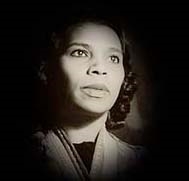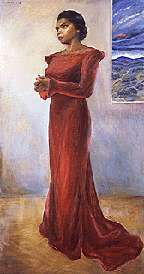 |
My hero is Marian Anderson (1897-1993). She was a very famous singer.
Anderson was born on February 27, 1897 in Philadelphia, Pennsylvania. When she was six, she joined the junior choir at a Baptist Church. After her father died, her mother raised the three daughters by herself. Anderson was 15 when she took her first formal music lesson. In high school, Anderson sang with the all-black Philadelphia Choral Society. She graduated from South Philadelphia High School for girls in 1921.
 |
After high school, she applied to a music school but was told "we don't take colored." This school was for white students only. In 1925, Anderson entered a New York Philharmonic voice competition and won first prize.
In the 1930s, Anderson went on a concert tour of Europe as her reputation as a singer grew. In 1935 in Salzburg, Austria, the famous conductor, Arturo Toscanini, told her after a concert, "a voice like yours is heard once in a hundred years."
Show business promoter Sol Hurok heard her in Paris and decided to bring her back to the United States, even though he was told "you won't be able to give her away."
Anderson was invited to perform for Franklin and Eleanor Roosevelt. A women's group to which Eleanor Roosevelt belonged, Daughters of the American Revolution, tried to stop Anderson from performing. Roosevelt and many members of the group resigned in support of Anderson, and Eleanor Roosevelt arranged for Anderson's appearance on the steps of the Lincoln Memorial on Easter morning of 1943. More than 75,000 people gathered to hear Anderson sing and support her. As one of the first African-American musicians to gain widespread popularity with mixed audiences in this country, Anderson was a leader and an inspiration. She gave her farewell performance at Carnegie Hall on Easter Sunday in 1965 and died in April 1993.
Marian, you're my hero.
Page created on 12/5/2005 12:48:43 PM
Last edited 2/23/2019 3:30:43 PM
The manuscript is the handwritten work of Finnish composer Jean Sibelius. The song, "Den Judiska Flickans" (The Jewish Girl), was written in 1906. After Sibelius met Marian Anderson, he was so impressed with her that he took this piece of work and rewrote it especially for her. Though Anderson performed it in concert, it was never recorded.
